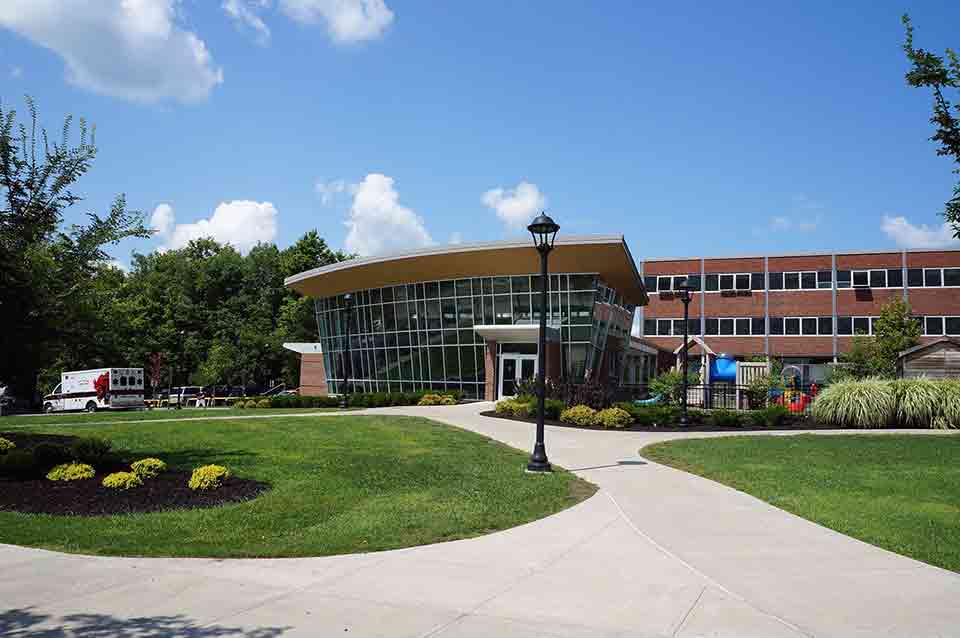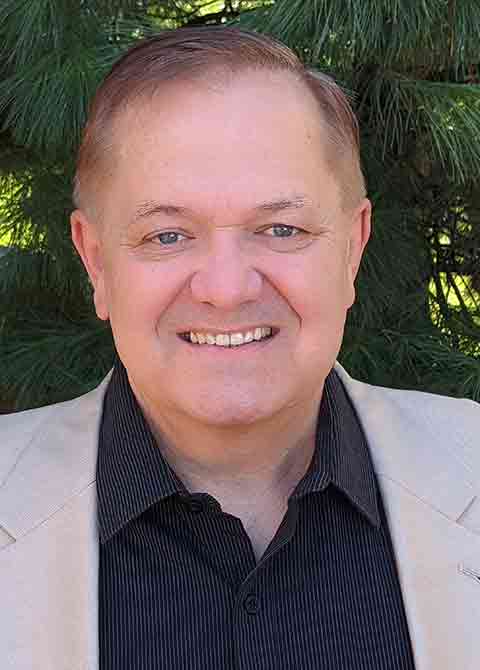It is time for the Polish government to fund Polonia Departments in major universities. The story of Polonia must be carefully researched and presented if Poland wants to use this tremendous demographic asset to strengthen her role in the global arena. Currently, the study of the diaspora with ties to Poland, called Polonia, is fragmented, not coordinated with the strategy of country’s development, and often steered by foreign funding sources. Research findings do not reach Polonia centers around the world. Poland prides herself with the Jagiellonian University and its role as the academic cradle of Poland. We need a Polish university, which will lead the way in elevating the role of Polonia to its due place in the development of Poland’s global potential.
Investing in Polonia
Polonia exceeds 50% of the population of Poland. In the times of low fertility and demographic constrains, it is in the national interest to approach Polonia as a demographic, cultural, political, and economic asset. In the time of ever-expanding role of connectivity, any opportunity to increase interaction with any foreign country is at a premium. Nations that pursue the strategy of supporting their diaspora profit with improved perceived global status, cultural recognition, economic gains, and national security. Polonia is an underutilized asset in a Polish deck of cards, which might be used in the game of balance and prestige. If used wisely, it could be a Joker that will trump many a hand Poland needs to play in the global game of influence and power.

Source: Pixabay
Currently, Poland’s rhetoric towards its diaspora mostly reflects her past as a colonial spoil of Russia and Germany. It was in the interest of the colonial powers to divide and isolate Poles into warring factions separated by borders and walls of distrust and hatred. Millions were killed and deported to forced labor, or gulags since the extermination of Poland as a political entity in 1795. Till today, there are tens of millions of descendants of Poles scattered around the world with little awareness or hope to learn about their heritage and potential benefit from belonging to Polonia. It is difficult for most of them to acquire Polish citizenship or even the Pole’s Card (Karta Polaka), which was introduced in 2007 as means of recognizing foreigners with Polish roots.
Studying current research on Polonia and the methodology it uses, it is evident that most studies are framed as deficit models, i. e. as a chore or a duty of care. Almost no academic or political analysis frames the study of Polonia as a possible asset that might benefit Poland. When Moscow treated the outside world as a hostile place to be separated and protected from, she was a remote outpost hiding in the swamps and forests. Peter Alekseevich changed this approach and opened Muscovy to the world. This decision earned him the name of Peter the Great. When Poles looked at the world as an opportunity to connect to rather than a threat to protect from, it usually brought them expansion and growth. A politician who will connect Poland and Polonia into a global network of cooperation might earn the name of “the Great.”
There are about 10 million American citizens who claim Polish roots according to the 23rd Census data from April 2010. Since only few apply for Polish citizenship, most Polish researcher assume, that they are not interested in reconnecting with the old country. The key reason for their disinterest however is not their lack of motivation but rather Poland’s poor level of preparedness needed to successfully advertise and then assist American Polonia in acquiring Polish citizenship. Polish administrators do not satisfactorily facilitate the process of applying for Polish citizenship in the United States.
The majority of American Polonia do not know that they may apply or what the process is. Those few who do, regard the process as cumbersome, confusing, and leading practically nowhere. First, we must understand that less than 2% of American Polonia speaks Polish or have any contact with Polish ambassy or consulates. Average American has rudimentary education about Poland. Second, Americans are used to robust, high quality advertising and usually do not search for anything against the odds. Placing a page on the Polish Embassy’s website regarding Karta Polaka is not a way to effectively communicate with an American audience.
It is true that most of American Polonia is not interested in dual citizenship. Many in Poland argue that the reason for it is some strange American gene, a function of American consumerism. Such reasoning is a way to remove blame away from those in charge of the campaign to motivate Polonia to file for Polish citizenship. Key reason for the blame game is not because the researchers are misinformed but rather that they manipulate the facts to protect the bureaucrats in charge.
To reach an American with any new initiative, one needs to understand the expected norms driving such outreach in the United States. A high quality, aggressive and assertive advertising is what an average American is used to and expecting daily. Mentioning something in a remote place of the Internet universe is not how you effectively inform and motivate people to do anything in the United States. The expected norm is that people hang up if someone calls them with any sales pitch or an offer to consider something new. A good rule of thumb is the Rule of Seven, formulated by marketing expert Dr. Jeffrey Lant. Lant states that to penetrate the buyer's consciousness and make significant penetration in a market, one must contact the prospect a minimum of seven times within an 18-month period. If a person has not been contacted at least seven times on various levels with information, the information has not been presented adequately to be even noticed.
In order to improve the process of applying for Polish citizenship in the United States, one needs to begin from the restructuring of Polish bureaucrats. In a colonial country, the key function of a clerk is to control the customer. The clerk evaluates whether the customer follows the rules imposed by the system. In a free country, the clerk serves the customer. To an average second-, third-, or fourth-generation Polish American, a post-colonial approach is confusing. If he has to plead for Polish citizenship and follow intricate steps, the signal is clear: Polish government does not care for Polonia to obtain Polish citizenship.
Poland was steadily developing territorially, politically, and economically since the baptism of 966. The 14th century was the time to take more active part in the international debate on the academic level. A substantial endowment by queen Jadwiga allowed the Jagiellonian University to develop and serve Poland well since its inception in 1364. After the end of World War II and especially since the liberation from the grip of the Soviet Union in 1989, Poland enjoys peace and relative self-rule. It is high time that an impressive array of Poland’s academic institutions is substantially endowed to begin work on including Polonia as a viable asset of Poland. Expanding global outreach by adding further 50% of population will have dramatic impact on Poland’s status, political standing, economic output, and security. Polonia is a potential trendsetter that will position Poland in the forefront of the global debate on the future and the present of international connectivity across countries, cultures, nations, religions, and economies.
Polonia Departments
Polish universities and academic elites should approach the study of Polonia in an institutionalized, organized, and systematic way. According to Warsaw University Centre of Migration Research, the policy of Poland towards the diaspora was first formulated in 1991. It was based on the experience of other countries of the European Union. Because Poland has had an extensive experience of migration since the partitions of 1795, basing the formulations of Poland’s policy towards Polonia on the experience and knowledge of others shows that Poland did not devote any serious effort to research her migration. Let us consider financial motivation of such research. The Bureau for Migration was created in 1993, which is the year when the European Union was created. The creation of the bureau was not the outcome of Polish government’s initiative into academic research on Polonia but rather the result of funding available through the European Union.
In 2013, the Chancellery of the President of Poland wrote about the need to define the strategy towards migration. It is a laudable suggestion. It is hopeless to expect that such strategy may be effectively formulated without an engagement of the Polish academia. Such research should be focused on the concept of Polonia’s role in increasing global connectivity of Poland. It should be coordinated with the strategy of country’s development.
The approach of the Polish government to Polonia is haphazard and based on the deficit model. Migration is understood as a problem to be contained or a service to less fortunate. Such approach misses the consideration of a potential benefit Polonia might bring to Poland. There is a need for more careful and in-depth study of prospective benefits of utilizing Polonia for Poland. It is unrealistic to expect that the bureaucrats will come up with satisfactory answers to Poland–Polonia relationship, including possible benefits of such relationship. It is too complicated of a task to be entrusted to the strategic vision of a few bureaucrats.
The 2016 paper from the Center of Migration Research on the shaping of Poland’s migration policy 1989-2016 does not once mention American Polonia, the largest segment of the Polish diaspora, which is the obvious proof of how fragmented and incomplete the current approach to Polonia is. The migration policy of Poland from July 2011 is a detailed 137-page document prepared by the task force charged with the preparation of the Polish Migration Strategy, which was convened as the representation of Migration Issues Team. They wrote about the United States the following: “The Census reporting of 2000 revealed that there are 450 thousand persons born in Poland in the United States. The status of the remaining members of the diaspora not born in Poland is difficult to ascertain;” not a word more; not a word about 10 million who declared their Polish ancestry in the Census reporting.
“Polska nierządem stoi” (Poland is strong through her weak government) was a phrase used to claim that if Poland disarms and weakens her government’s resolve, the neighboring countries would not be threatened by Poland’s posture and would not attack her. History teaches us that the opposite happened. When Poland was perceived as weak and disarmed, her neighbors united in their attack and wiped Poland off the map of the world. Today, Polish government spends resources to placate those who are hostile to Poland in the vain hope that they will stop their attacks. A portion of these funds could be directed for the research on Polonia to create an original Polish model of coordinating the resources of 40 million of Poles with 20 million of Polonia into one cohesive international social body. It is up to the Polish government to decide how to treat its diaspora. Polonia is too weak and fragmented to pull herself by the bootstraps into a unified, educated, focused, and prosperous community and then decide to support Poland as true sons and daughters of the motherland.
Popiół i diament (Ash and Diamond) is a 1948 novel, which was made into a 1958 drama movie Ashes & Diamonds. In the novel, Jerzy Andrzejewski presents the “ashes,” the generation burned through the hecatomb of World War II. He asks if there are any diamonds in the ashes of the Apocalypse, tempered in the crucible, who might become the cornerstones of a new future. Poland should look for the diamonds among the ashes of Polonia and bring them to a proper shine. Rather than a deficit model, Polonia research should be viewed as an opportunity. The priority should be to plan how to use Polonia for the future of Poland. Focusing mostly on the history of Polonia is limiting it to the first level of the three-step analysis, which must include past, present, and future. Such analysis demands the creation of departments of Polonia in Polish Universities. If designed well and connected into the political and economic strategic plan for Poland, the employment opportunity for Polonia experts able to facilitate global connectivity could, at least, equal funds currently available through the European Union.
Poland is the largest country in Europe whose citizens lost their citizenship after the partition of 1795. Millions of them were killed, millions more were deported or left populating the world as Polish diaspora. Polonia has a unique value for Poland in today’s world of globalization if used as an asset. It is the duty of an independent Poland to study Polonia and share this knowledge with the world. Polonia is an undiscovered gem, a diamond of global connectivity to be excavated from the ashes of Poland’s two centuries of hardship. If properly polished, Polonia might become the shining beacon of Poland’s global connectivity in the fields of culture, economy, and national security. Let us hope that Polish universities will be adequately endowed to start creating Polonia Departments and begin systematic interdisciplinary study of Polonia as Poland’s demographic treasure and opportunity.








